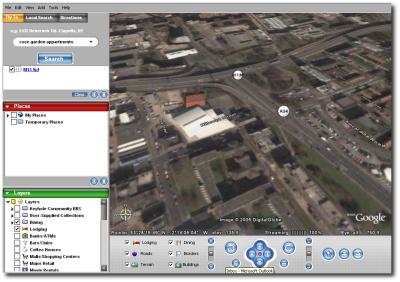Remote Data

Will you trust these for storing your mail?
 uch information is migrating from our hard-drives to on-line servers: files (e.g. FTP), bookmarks (Deli.ci.us or portals), (Web-based) mail, feeds (analysis and statistics by Feedburner), photos (notably Flickr) and newsgroups (e.g. Google Groups) are merely a few more major examples.
uch information is migrating from our hard-drives to on-line servers: files (e.g. FTP), bookmarks (Deli.ci.us or portals), (Web-based) mail, feeds (analysis and statistics by Feedburner), photos (notably Flickr) and newsgroups (e.g. Google Groups) are merely a few more major examples.
Storage of personal data remotely has its powers:
- Data can be accessed from anywhere regardless of the computer used
- Backup is often handled by the service providers
- Liability shifts to service providers
- Inferences, e.g. spam filtering in GMail that adapts in accordance to users’ purging behaviour, social bookmarks, tagging…
Some people, myself included, have learned the hard way why the dependency upon third parties is risky. Hard-core users have their todo lists on-line, their mail on third-party servers and often files or address books stored remotely. The dangers:
- On-line servers may disappear due to bankruptcy, takeovers or corruption
- Import (and especially export) facilities are intentionally limited to suppress user mobility
- Servers fail or periodically go down; timescale for recovery is unknown
- Limited space and ‘premium’ packages that later emerge
- Pricing and policies which change, e.g. Yahoo stopped free POP3 support around 2001 (I too was a victim)
It is easier to blame somebody else but yourself as in the case of third-party dependencies. Yet, things are different when you control your own — shall we say — destiny. Ownership of your own domain is the first step towards an easier life in which the system administrator is yourself.






 Filed under:
Filed under:  have searched Google for NORSOC — a society in Manchester for Norwegian students. Surpisingly, there were no proper results.
have searched Google for NORSOC — a society in Manchester for Norwegian students. Surpisingly, there were no proper results.

 here has recently been a rise in the number of scrapers across the Internet. Such sites ‘scrape’ content off other existing, content-rich sites and put it along with ads on the Internet. They can make a ‘quick buck’ by attracting errant users who use search engines. In the process, genuine sites lose visitors and potentially get penalised for duplicate content.
here has recently been a rise in the number of scrapers across the Internet. Such sites ‘scrape’ content off other existing, content-rich sites and put it along with ads on the Internet. They can make a ‘quick buck’ by attracting errant users who use search engines. In the process, genuine sites lose visitors and potentially get penalised for duplicate content.
 There is a true advantage to having audio stored locally, as in the case of off-line podcasting. There is full control, in general, over the audio data in question. This means that podcasts can be sped up to fit the preferences of the listener. There is an XMMS plug-in called
There is a true advantage to having audio stored locally, as in the case of off-line podcasting. There is full control, in general, over the audio data in question. This means that podcasts can be sped up to fit the preferences of the listener. There is an XMMS plug-in called  Video formats are among the most complicated formats to handle. Decoding and encoding of a frame sequence is an intricate process that different manufacturers take a different approach to solving. One solution is to settle down for no compression, the other being imposition of standards. There is one body, namely Microsoft among a few more, that embeds elements which are never agreed upon in the IT community. This corruption of inter-operable formats includes documents, spreadsheets, mail and even Web pages.
Video formats are among the most complicated formats to handle. Decoding and encoding of a frame sequence is an intricate process that different manufacturers take a different approach to solving. One solution is to settle down for no compression, the other being imposition of standards. There is one body, namely Microsoft among a few more, that embeds elements which are never agreed upon in the IT community. This corruption of inter-operable formats includes documents, spreadsheets, mail and even Web pages. 
 oogle Earth is a project which strongly impresses me. I got hold of a Windows machine where Google Earth had been installed and grabbed a few screenshots of streets around Manchester, UK.
oogle Earth is a project which strongly impresses me. I got hold of a Windows machine where Google Earth had been installed and grabbed a few screenshots of streets around Manchester, UK.